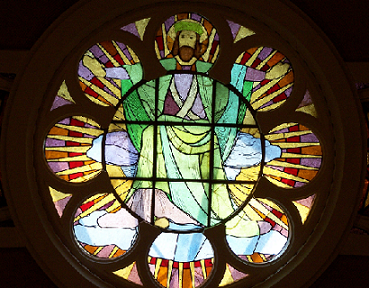
While attempting to translate the Gospel of Mark into modern Hebrew I came to the startling conclusion that there once existed a Hebrew Life of Jesus that was later translated into Greek, and that descendants of this literal Greek translation of the Hebrew Life of Jesus served as the basis of the Synoptic Gospels. We may, therefore, speak of a Hebrew source from which the Synoptic Gospels stem.
Despite the popularity of the modern suggestion that the Synoptic Gospels are the end result of several decades of oral transmission, the internal evidence indicates that this is not the case. Dozens of pericopae in Matthew and Luke translate to Hebrew so easily and so idiomatically that we must conclude that the Synoptic Gospels are the result of literary transmission. Let me illustrate this contention by placing side by side the Greek text of Luke 22:67-70 and my Hebrew reconstruction.
Premium Members and Friends of JP must be signed in to view this content.
If you are not a Premium Member or Friend, please consider registering. Prices start at $5/month if paid annually, with other options for monthly and quarterly and more: Sign Up For Premium
- [1] E.g., in Num. 23:19; Isa. 51:12; Jer. 49:18; Ezek. 2:1; and Ps. 8:5. ↩
- [2] E.g., in Deut. 32:8; 2 Sam. 7:14; Jer. 32:19; and Joel 1:12. ↩
- [3] E.g., in Gen. 11:5; 1 Sam. 26:19; 1 Kgs. 8:39; Ps. 33:13; and Eccl. 1:13. ↩
- [4] This may be the reason the arthrous singular form, which includes the definite article הָ (hā) before אָדָם (’ādām), never developed. ↩
- [5] For further discussion of the linguistic background of the phrase "son of man" in the Gospels, see Randall Buth, "'Son of Man’: Jesus' Most Important Title." ↩
- [6] Jesus' remark containing the word "ask" is a reference to an accepted rabbinic procedure in debate: the one who is queried is allowed to ask a question in return. ↩
- [7] Flusser suggests that Mark and Matthew, who omit the words "of God," may have the more original reading at this point (Mark 14:62; Matt. 26:64), and that Luke (or his source) added the words "of God" to "the Power" in order to make Jesus' statement clearer for his Greek-speaking readers. See David Flusser, "The Great Goddess of Samaria," Israel Exploration Journal 25 (1975): 18, n. 31. However, Randall Buth has suggested (personal communication) that Luke's "the Power of God" may be original because of the recurring phrase גְּבוּרַת אֵל (gevūrat ’ēl, "the Power of God") in the Dead Sea Scrolls (1QM 1:11, 14; 4:4, 12; 6:2, 6; 10:5). ↩
- [8] According to the Masoretic tradition, ילדתיך is vocalized as יְלִדְתִּיךָ (yelidetichā, "I have fathered you") in Psalm 2:7, whereas in Psalm 110:3 ילדתיך is vocalized as יַלְדֻתֶיךָ (yaldutēchā, "your youth"). However, the Septuagint, which renders ילדתיך in Psalm 110:3 as ἐξεγέννησά σε (exsegennēsa se, "I begot you"), shows that, at least according to some ancient traditions, ילדתיך in Psalm 110:3 was vocalized the same way as in Psalm 2:7. ↩
- [9] Note that בַּר (Ps. 2:12) reinforces the identification of "Son of Man" (בַּר אֱנָש) with "Son of God." ↩
- [10] For a more detailed examination of Jesus' response to the chief priests, see David Flusser, "'At the Right Hand of Power,’" in Judaism and the Origins of Christianity (Jerusalem: Magnes, 1988), 301-305; and Marc Turnage, "Jesus and Caiaphas: An Intertextual-Literary Evaluation," in Jesus' Last Week: Jerusalem Studies in the Synoptic Gospels 1 (JCP 11; ed. R. Steven Notley, Marc Turnage and Brian Becker; Leiden: Brill, 2006), 139-168. ↩
- [11] Compare Mark's double quotation uniting the prophetic references of Luke 7:27 with Luke 3:4 in Mark 1:2-3. ↩
- [12] Compare ἐγὼ καταλύσω τὸν ναὸν τοῦτον (egō katalūsō ton naon touton) in Mark 14:58 with καταλύσει τὸν τόπον τοῦτον (katalūsei ton topon touton) from the trial of Stephen (Acts 6:14). ↩
- [13] It seems likely that Mark incorporated the phrase ἀχειροποίητον οἰκοδομήσω (acheiropoiēton oikodomēsō, "I will build a house not made with hands") in Mark 14:58 in order to allude to 2 Cor. 5:1, where Paul writes of the “building not made by hands” (οἰκίαν ἀχειροποίητον, oikian acheiropoiēton). ↩
- [14] Here Luke preserves the remnants of a Hebraism unknown in Matthew's version: יוֹצִיאוּ עֲלֵיכֶם שֵׁם רַע (yōtzi’ū ‘alēchem shēm ra‘, “they will bring out upon you an evil name.” ↩
- [15] "Mourners" is an additional Isaianic usage (Isa. 61:2-3), which does not mean literally "mourners," but rather the remnant of Israel who wait on God's promised salvation. ↩
- [16] See Frank Moore Cross, Jr., The Ancient Library of Qumran (London: Gerald Duckworth, 1958), 61-62, 67, n. 81. ↩
- [17] Notice the absence of "thirst" in Luke's parallel version of this beatitude. ↩
- [18] In Hebrew a noun can modify another noun, in this case, "hungry [of] righteousness," that is, "righteousness-driven." ↩


![Robert L. Lindsey [1917-1995]](https://www.jerusalemperspective.com/wp-content/uploads/userphoto/28.jpg)
